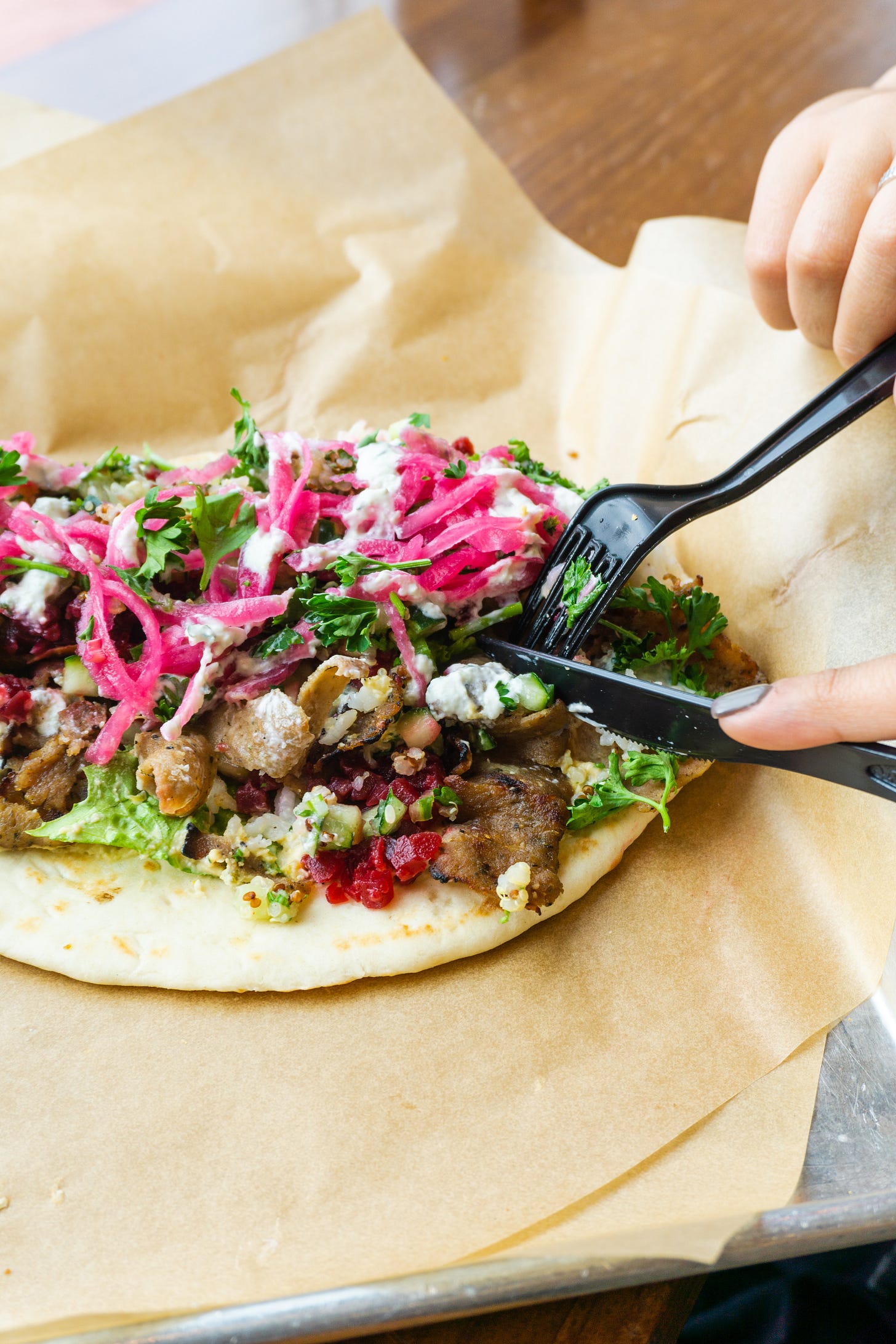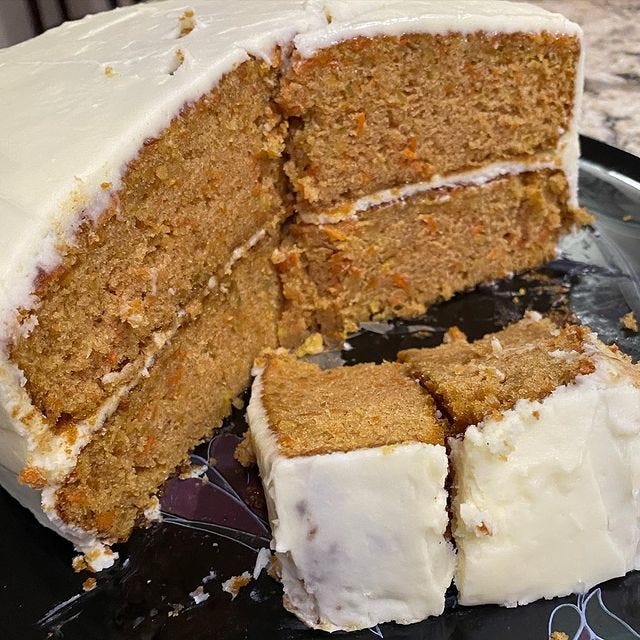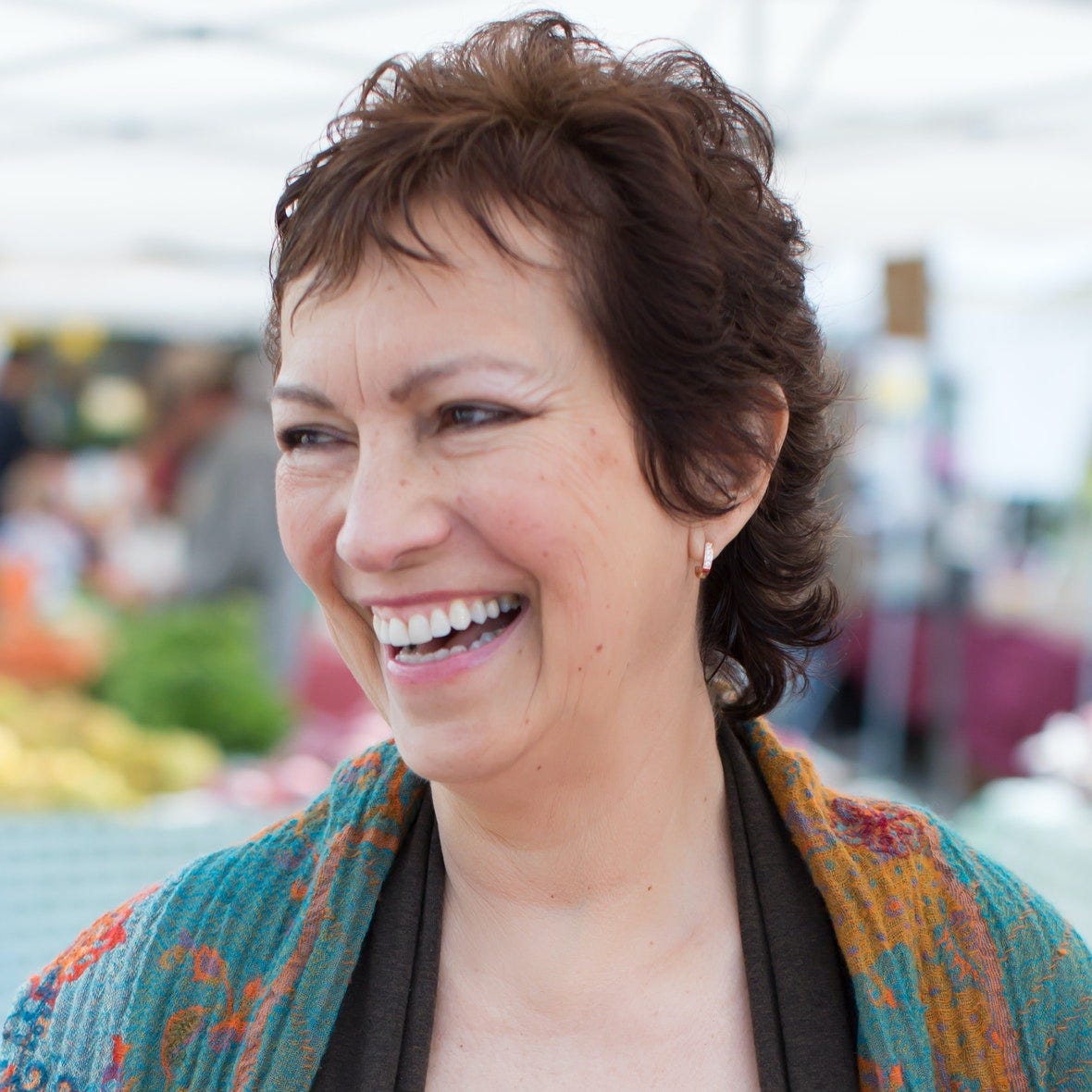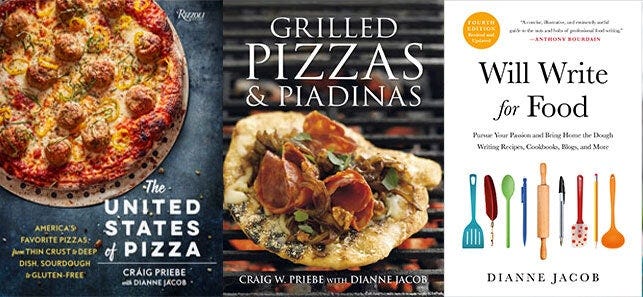How a People's Food Culture Disappears
Choosing which country a recipe belongs to has consequences

Recently writer Melissa Clark recommended a new recipe in the New York Times Cooking newsletter: Sabich Bowls. (Sorry, you need a subscription to see it.)
“Sabich” refers to Iraqi-Jewish fried eggplant and boiled eggs, a combo I devoured in my childhood. My family ate them at room temperature on the Sabbath when cooking is forbidden.
The writer called the dish “Middle Eastern.” It most definitely is not. Sabich is specific to Iraqi Jews. And further, the dish didn’t use plain boiled eggs. We all used hamin eggs, which are boiled eggs placed on top of a chicken and rice dish (called hamin or t’beet) and cooked for several hours, until they turned brown and creamy.
I felt the need to comment. I emailed Sam Sifton, the food section editor:
The sabich sandwich is Iraqi Jewish. Is there a reason to just call it just “Middle Eastern?” The fried eggplant and hamin egg are specific to Shabbat meals for Iraqis. These foods are not cooked the same way for the same reasons in other Middle Eastern countries -- except for Israel, which has a large Iraqi-Jewish population.
As a writing teacher, I advise that specific words are better than vague ones. So could you replace the words “Middle Eastern” with “Iraqi Jewish?”
I ask because of the continuing erasure of Jews from Arab countries. Our foods are one of the only things we have left. My Iraqi-Jewish family made eggplant and hamin eggs (much more than just boiled eggs) for Shabbat when I was growing up. These two foods have a special place in my heart.
Thanks for your consideration,
Dianne
Sifton wrote back:
Thank you for the note, Ms. Jacob, which I'll share with the team. You raise a good point, one we'll discuss. Cheers, Sam
They changed it to “Israeli.”
Most Iraqi Jews immigrated to Israel in the 1950s, because of discrimination. So if you want Iraqi-Jewish food, it is there.
But also, this denomination makes no sense. When immigrants open a restaurant in the U.S., do we call it “American” food? Of course not. We go for Greek food, Persian food, and Ethiopian food. Just as Israelis go for Iraqi food.
I lost that battle. It’s not the first. Food writers are erasing my Iraqi ancestor’s food identity. It is Israeli or Middle Eastern food now. The same thing happened to Iraqi-Jewish amba, a mango condiment.
(Jews lived in Middle Eastern or Arab countries since Biblical times, despite discrimination. But once the State of Israel was founded in 1948, Arab governments forced most remaining Jews to leave their countries, and others left for opportunities abroad. Many Arab or Middle Eastern countries’ populations are down to single digits of Jews. Iran has the most, with 2000 at last count in 2016.)
Most people have never heard of Jewish-Iraqi food. And soon it will cease to exist as a cultural tradition, except in the memories of those who grew up with it.
What I’m Eating:
My Instagram readers got excited about this carrot cake I made for my husband’s birthday. So many comments!
My Cookbook Class Starts Later This Month!
Jumpstart Your Cookbook Proposal
3 Sundays, April 16, 23 and 30, 10 a.m.-1 p.m. PT/ 1-4 p.m. ET
Civic Kitchen 3-hour Zoom Classes
12 students maximum
$399 online
Ready to write a cookbook? Good. To have it traditionally published, you’ll need to write a cookbook proposal. Cookbook proposals are long, a cross between a business plan and an explanation of your book.
Perhaps you’re not sure what to write, or you would like accountability and support. Either way, this is the class for you.
You’ll get lots of strategic insider advice gained from my decades of teaching and writing about cookbooks, judging them for national awards, and co-writing two with a chef. I'll lay out how the publishing industry works and what editors and agents look for in a professional proposal.
I'll discuss what’s included in each section of successful proposal. You’ll write first drafts of several proposal sections in the class and get valuable feedback. At the end of three weeks, you'll have a solid start to your proposal, and ideas of how to make it irresistible to an agent or editor.
Bonus: It's unusual to see someone’s successful cookbook proposal. I'll share one of mine, which led to a beautiful cookbook by Rizzoli.
P.S. If you live outside the US, I hope these times are doable for you.
Private Consults
Through a partner, Delicious Experiences
One-hour consult: $250
For years I've had a five-hour minimum for consulting. But now, through this company, you can book a Zoom consult for just 1 hour or more. If you’ve wanted to start your cookbook, get your book published, or get better freelance assignments, let’s move you forward. I’ve talked with writers at all levels about a variety of food-writing topics.
What I'm Reading:
The 12 Best Cookbooks of Spring 2023. According to Eater.
The 20 Most Exciting New Cookbooks of Spring 2023, according to Simply Recipes.
Fifty Shades of Pâté: New Cookbooks. The category continues to thrive.
The Best Gluten-Free Cookbooks for Bread, Pastries, and More. The author says she’s never made a bad recipe from any of them.
Nora Ephron’s ‘Heartburn,’ 40 Years In. A great analysis of how this novel has aged. Ephron was always one of my favorite writers.
100 Best Email Subject Lines to Get More Opens. Needs a little interpreting for our work, but worth considering to generate an emotional response.
The Power of Sisterhood. How Toni Morrison and other literary superstars formed a supportive writing group that included Vertamae Smart-Grosvenor.
With 800 Recipes, ‘The Book of Jewish Food’ Defined the Cuisine of a Diaspora. Funny, moving and a revealing look at one cookbook author’s approach.
Alison Roman Won't Sugarcoat It. Get caught up on this superstar, under the guise of promoting her new book. In Time magazine!
He wrote “Sideways,” which became the most influential wine movie ever made. Now he says he was “completely ripped off.” Author Rex Pickett says he made “less than $100,000” from the book and adaptation fee.
11 Ways Influencers & Creators Can Make Money in 2023. How to make money on social media.
Art of the plate: Go behind the lens with La Jolla’s Eric Wolfinger, the nation’s most acclaimed food photographer. A feature on the man and his dream job.
Weird Vintage Recipes Found a Second Life Online—And They’re Thriving. Old dishes that make social media stars.
Fourth Annual Last House Writing Contest for Emerging Writers. The contest celebrates the writing of M.F.K. Fisher. Deadline is May 17, 2023. Submit 750 words max. Ruth Reichl is one of the judges!
The Delicious Universe of Asian Culinary Comics. Recipes as food cartoons.
Kitchen Project #98: For the love of cookbooks. Nicola Lamb interviews cookbook authors Dorie Greenspan, Helen Goh, Yossy Arefi, Camilla Wynne, and Liz Prueitt.
How do you write a recipe? Take an intensive class from Hannah Howard and Yasmin Fahr.
News About Clients and Students
Congratulations to former student Viola Butoni, whose cookbook, Italy By Ingredient, is available for pre-order. (She also hired me to review her book proposal.)
The Splendid Table interviewed Leena Trivedi-Grenier about the history of chai. (She hired me for a consult about book publishing.)
Serious Eats published four recipes by Nermine Mansour: Basbousa Bel Ashta: Egyptian Cream-Filled Semolina Cake; Bissara: Egyptian Dip of Split of Fava Beans and Aromatic Herbs; Fatta: Egypt's Festive Dish of Meat and Rice; and Kabab Halla (Egyptian Braised Beef With Onions). (I can’t take any credit but she hired me for a consult.)
Nosh published Global Soul Food dinners celebrate Black foods of the Diaspora by Anna Mindess. (I coached her on freelance writing ages ago.)
Congratulations to Yvette Marquez-Sharpnack, who announces her new cookbook: Muy Bueno: Fiestas: 100+ Delicious Mexican Recipes for Celebrating the Year. (I coached her on the cookbook proposal.)
I like to brag about food writing accomplishments here. Send me an email: dj@diannej.com.
Thanks for Reading
Like this newsletter? Please forward it to a few people or share on social media. It really helps! New subscribers can sign up here. Thank you.
If you enjoyed this post, please click on the little ❤️ below ⬇️.
Dianne Jacob
Editor, Writer and Coach
Email: dj@diannej.com
Website: http://diannej.com
Twitter: https://twitter.com/diannej
Facebook: https://www.facebook.com/foodwriting
Instagram: https://www.instagram.com/diannemjacob/
My Books
Will Write for Food: 2021 4th Edition
Disclosures: I am an affiliate of Food Blogger Pro, Amazon and Bookshop.org.







I’m very glad I read this. I was unaware of both the dish and the erasure, but now I’m wondering how much that’s happened to all kinds of food I’ve eaten.
Thanks! Yes, like many others, it is an assimilation story, mostly documented by Fanny Farmer, Betty Crocker, Rombauer/Becker and the like. Some Midwestern immigration stories show how the mass migrations to designated places (think the Upper Midwest), the overall foodways morphed into American with a side of Old Country. It's all interesting!